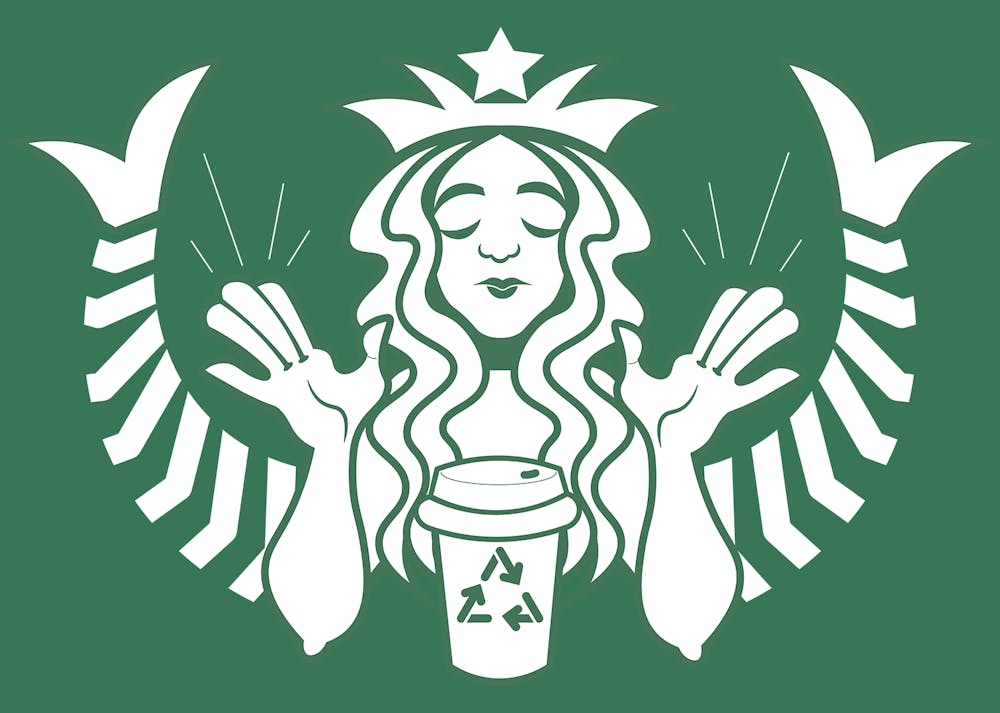ASU, in collaboration with Starbucks, is taking strides to decrease plastic waste by replacing single-use plastic cups with reusable cups at the nine participating Starbucks locations on ASU campuses.
While the University is making changes to reduce plastic waste, one major contributor to plastic pollution on campus is generated by single-use Starbucks cups.
A study conducted by Clean Water Action found that each minute Starbucks consumes over 8,000 cups, which roughly translates to over 4 billion cups in a year. Given that most Starbucks cups are made of plastic, they cannot be effectively recycled and oftentimes end up in the trash.
In continuing its Zero Waste initiative, aimed at boosting campus sustainability by 2025, the University is looking to fulfill its recycling and composting goals.
"Plastic pollution is minimizing the positive things ASU has been working on to be more sustainable," said Nandana Bellamkonda, a sophomore studying sustainability. Even with LEED-certified buildings and renewable energy sources, plastic cups outweigh that progress, Bellamkonda said.
Ava Claus, a representative for the School of Sustainability in the Global Futures College Council, said the University needs comprehensive plastic waste reduction efforts across the campuses to promote sustainable living for students and faculty.
"ASU should be taking steps to minimize plastic waste on campus as much as possible," Claus said. "Having more recycling and compost bins than trash bins means that students throw non-recyclable materials into these bins, destroying the point of having them in the first place."
Under the pilot program, known as the "Borrow A Cup" initiative, Starbucks conducted a trial of reusable cups at specific ASU campus locations.
During this trial phase, customers who choose to reuse a "Borrow A Cup" from a prior visit are entitled to a $1 discount on their beverage of choice.
"Starbucks' reusable cup policy encourages students to think more critically about the waste they produce," Claus said. "Through incentives for using reusable cups rather than plastic, Starbucks is both reducing waste and, hopefully, reminding students of the importance of living a sustainable lifestyle."
To ensure that the reusable cups are returned to Starbucks locations, Starbucks has set up specific collection bins across the campus, designed and produced by the ASU Circular Living Lab.
According to the Starbucks website, the bins are made up of materials that are "equivalent to repurposing 1,350 single-use cups," demonstrating Starbucks' dedication to sustainability and its progress toward fulfilling its goal of cutting their waste footprint in half by 2030.
"Right now, we are seeing around 38% of the 'Borrow A Cups' being returned to the bins right in front of the Starbucks store," said Vera Von Esse, a program manager with the ASU-Starbucks Center for the Future of People and the Planet.
Bellamkonda said programs like the Borrow A Cup initiative are crucial because they teach students how to integrate proper recycling practices into their daily lives.
"Initiatives like the Starbucks 'Borrow A Cup' program are fantastic because they make reusing plastic and recycling more accessible and clear for people," Bellamkonda said. "This encourages individuals to adopt more sustainable practices across our campus and beyond."
Edited by Grey Gartin, Alexis Waiss and Caera Learmonth.
Reach the reporter at ssudha13@asu.edu.
Like The State Press on Facebook and follow @statepress on X.




